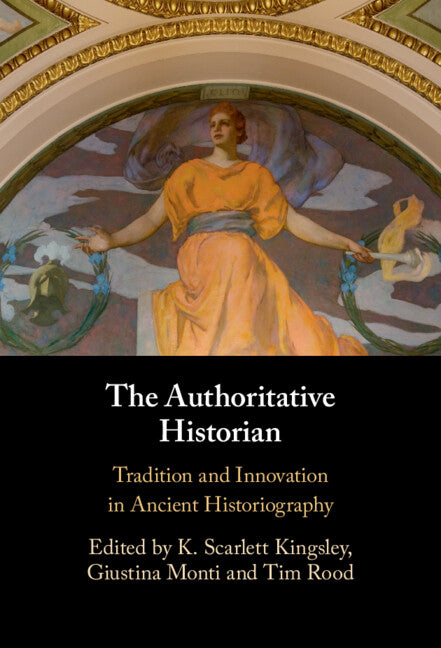Freshly Printed - allow 6 days lead
Couldn't load pickup availability
The Authoritative Historian
Tradition and Innovation in Ancient Historiography
A series of essays exploring tradition and innovation across the full temporal range of Greco-Roman historiography.
K. Scarlett Kingsley (Edited by), Giustina Monti (Edited by), Tim Rood (Edited by)
9781009159456, Cambridge University Press
Hardback, published 26 January 2023
400 pages
23.5 x 15.8 x 3.1 cm, 0.86 kg
In this volume an international group of scholars revisits the themes of John Marincola's ground-breaking Authority and Tradition in Ancient Historiography. The nineteen chapters offer a series of case studies that explore how ancient historians' approaches to their projects were informed both by the pull of tradition and by the ambition to innovate. The key themes explored are the relation of historiography to myth and poetry; the narrative authority exemplified by Herodotus, the 'father' of history; the use of 'fictional' literary devices in historiography; narratorial self-presentation; and self-conscious attempts to shape the historiographical tradition in new and bold ways. The volume presents a holistic vision of the development of Greco-Roman historiography and the historian's dynamic position within this practice.
Introduction: the authoritative historian K. Scarlett Kingsley, Giustina Monti and Tim Rood
Part I. Myth, Fiction, and the Historian's Authority: 1. Seven types of fiction in the Greek historians Michael A. Flower
2. Folktale and local tradition in Charon of Lampsacus Nino Luraghi
3. Mythical and historical time in Herodotus: Scaliger, Jacoby, and the chronographic tradition Tim Rood
4. Myth and history in Livy's preface A. J. Woodman
Part II. Dislocating Authority in Herodotus' Histories: 5. Herodotus as tour guide: the autopsy motif Scott Scullion
6. Interpretive uncertainty in Herodotus' Histories Carolyn Dewald
7. 'It is no accident that…': connectivity and coincidence in Herodotus Richard Rutherford
8. Through barbarian eyes: non-Greeks on Greeks in Herodotus Deborah Boedeker
Part III. Performing Collective and Personal Authority
9. Singing and dancing Pindar's authority Lucia Athanassaki
10. Authority, experience, and the vicarious traveller in Herodotus' Histories K. Scarlett Kingsley
11. Veni, vidi, vici: when did Roman politicians use the first-person singular? Harriet Flower
12. Self-praise and self-presentation in Plutarch Frances B. Titchener
Part IV. Generic Transformations: 13. Thucydides' Mytilenaean debate: political philosophy or authoritative history? Paul Cartledge
14. Tradition, innovation, and authority: Caesar's historical ambitions Kurt A. Raaflaub
15. Tradition and authority in Philostratus' Lives of the Sophists Ewen Bowie
Part V. Innovation within Tradition: 16. 'When one assumes the ethos of writing history': Polybius' historiographical neologisms Giustina Monti
17. How tradition is formed: from the fall of Caesar to the rise of Octavian Mark Toher
18. 'Burn baby burn (disco in Furneaux)': Tacitean authority, innovation and the Neronian fire (Annals 15.38–9) Rhiannon Ash
19. The authority to be untraditional Christopher Pelling.
Subject Areas: Classical history / classical civilisation [HBLA1], Ancient history: to c 500 CE [HBLA], Historiography [HBAH]


